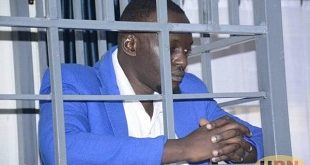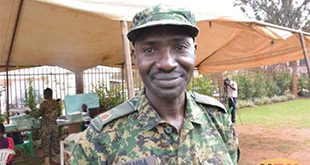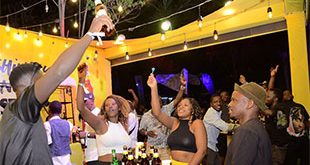
By Tracy Gwambe
Police in Uganda is still the worst torturer of journalists, the 2012 Press Freedom Index launched in Kampala on Feb.6 said.
The index prepared by Human Rights Network for Journalists Uganda (HRJN-Uganda) shows that in 2012 alone, the police made 42 attacks against journalists out of the 85 reported cases of which one journalist was murdered.
“The police find journalists as a soft spot for torture,” said Geoffrey Wokulira Ssebagala, the National Coordinator, (HRNJ- Uganda), “This also explains why the freedom of expression dying out completely.” HRNJ is a network of human rights journalists that aims to protect and defend their rights.
The report notes that the police continue to attack journalists using direct paper spray, arrests, stealing of gadgets and detention without trial.
But Police Spokesperson, Ibin Senkumbi states that the relationship between the police and journalist has highly improved adding that media stories show improved interaction with the Police.
“Rights of the police stop at the time they start interfering with the rights of other people,” said Med Kaggwa, the chairperson of Uganda Human Rights Commission (UHRC), who launched the report.
The body added that the government has now taken to more sophisticated means of punishing journalists including call summons, asking journalists why they are publishing certain information, keeping them in court so that they cannot do their daily reporting as well as threats. The body notes that, that is why although 2012 registered lesser cases, 85 compared to 107 in 2011 the situation is yet to improve.
For instance, Kaggwa noted that the commission receives cases of journalist being harassed on a daily basis but there is no evidence or documentation and that some journalists just sit on their troubles without complaining.
Kaggwa advised the heads of the force to train their officers to learn and understand the law as well offences because some police officers threaten to arrest journalists even when they do not know what they are charging them for, as well as arresting wrong people because they cannot identify the right faces of the intended criminals.
HRNJ notes that because of this harassment and in some cases attempts to close down media stations, the space for journalists to enjoy their rights continues to shrink as the institutional framework supposed to protect them and other Ugandans collapses by the day.
The body adds that as a result, most radio stations have resorted to playing music instead of reporting important affairs. It adds that panelists of CBS radio station were stopped from talking on a talk show.
The report comes out hardly two weeks after the Speaker of Parliament; Rebbecca Kadaga suspended two reporters from The observer from covering parliament for allegedly reporting inaccuracies and issued new rules for parliamentary reporters.
The reporters, Tash Lumu and Sulaiman Kakaire maintain that their stories were accurate and are frustrated that they are not allowed to access the precincts of parliament yet it is their favourite beat.
Mulindwa Mukasa, the board chairperson HRNJ, emphasizes that these rules be read and adjusted to the constitution standards of clarity, to ensure respect and upholding of media freedoms.
In just four years, HRNJ has documented 289 cases of attacks against journalist of which none of the perpetrators has been convicted.
 The Independent Uganda: You get the Truth we Pay the Price
The Independent Uganda: You get the Truth we Pay the Price


